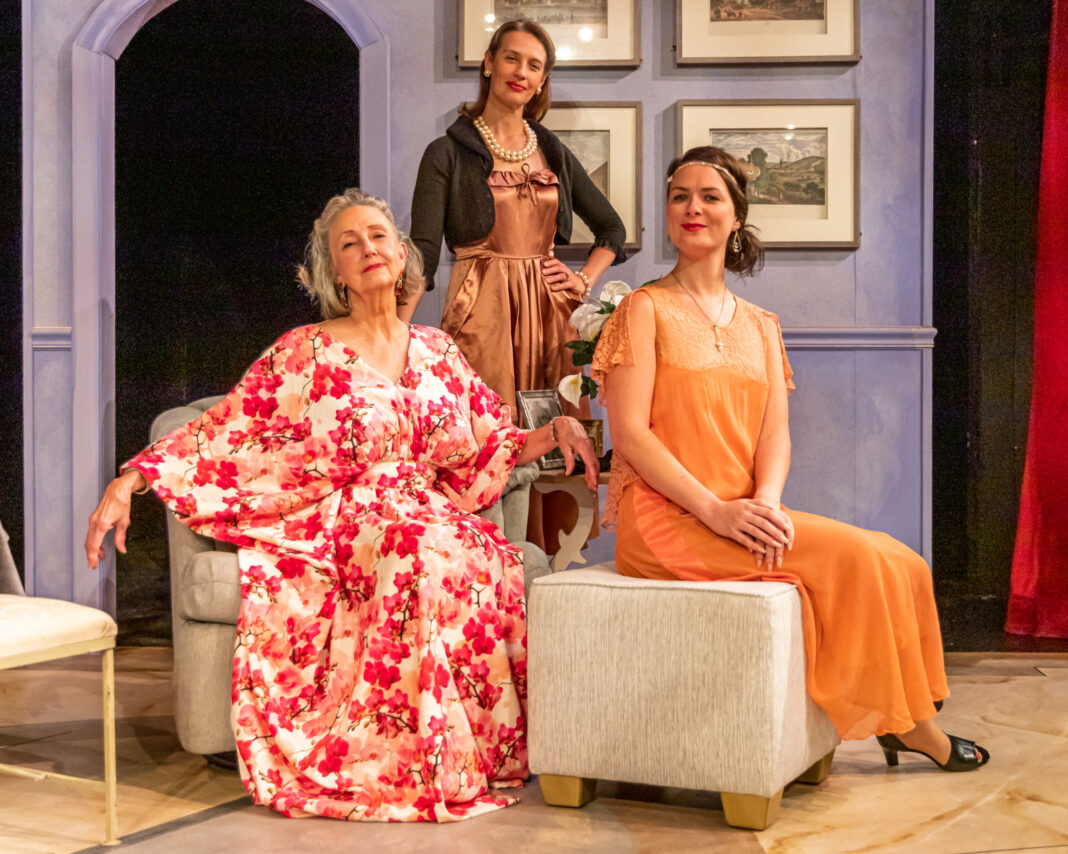Holding up a mirror to our consciousness — both spoken and unspoken — is what great playwrights like Edward Albee often do to expose what it means to be human.
“Three Tall Women,” a two-act performance now on stage at Key West’s Waterfront Playhouse is just such a reflection.
Albee’s Pulitzer Prize-winning autobiographical think piece about a life with all its attending fears, longing, regret, you name it, is meant to teach us something about living our best life now, the show’s artistic director Tom Thayer said.
“I like the fact that this moment — today — is truly the best time of our lives. It’s important to realize that, and I see that message for the audience in this material,” Thayer added.
“Three Tall Women” opens to the scene of a posh bedroom, where we meet “A,” a cranky, impossibly demanding and imperious 94-year-old woman (portrayed by Playhouse alum Leslie Greene) whose health is failing. What little sympathy we initially may have for her soon fades once her angry mouth spews rhetoric of intolerance and bigotry.
“Why can’t I be nice?” she wonders at some point.
A’s long-suffering caretaker “B” (Maggie McCollester) tries hard to reign in the old lady’s offending remarks, to little success. Joining the two onstage is a third character, “C” (Jessica Miano Kruel), a legal assistant who is attempting to untangle A’s legal affairs from the jumble they have become.
The elderly widow’s words and deeds, though, aren’t just funny filler for the play’s script. At the root of the politically incorrect character’s life was Albee’s own complicated relationship with his real-life mother who rejected him early on for his homosexuality. “All I see around here are boys, boys and more boys,” A laments.
The effect of Albee’s mother’s disfavor throughout his life shows broadly in the message of “Three Tall Women.” Albee’s other works include the Broadway hit “Who’s Afraid of Virginia Woolf,” which garnered the literary legend much critical and commercial acclaim during his creative career until his passing in 2016.
The story of “Three Tall Women” brings some redemption, for the audience at least. In Act II we see A, B and C as generationally separate incarnations of a single life. C in her 20s swears not to become B at a decade older; and B hopes not to become A at 56, a person we see as a discontent woman seemingly trapped in a loveless marriage and bound by social convention. Worse, she has cast her gay son out of her sphere. The takeaway, says Thayer, is to “be like that 26-year-old. See the promise in life so you can look back with no regrets.”
The play’s costuming and set design by R. Michael Boyer is incandescent with a past portrayal of the 50ish protagonist draped in pearls and sporting a stylish satin peach strapless dress made to show the era and social status of her upper-middle class lifestyle. Her younger carefree self as a free and open spirit wears a flowy sheath and beaded headband.
Whatever closure there is in the play offers little resolution with the estranged son. However Albee’s writing reflects how both the brightest – and darkest – versions of “A” converge together to tell the story of a life mostly regrettably lived.
In the end, “Three Tall Women” is a story in which the true function of vanity and intolerance is only folly.
“Three Tall Women,” runs through April 22 at Waterfront For tickets visit waterfrontplayhouse.org or call 305-294-5015.
















